The Netherlands is a constitutional monarchy with a parliamentary democracy. This means that while there is a hereditary monarch as the head of state, the government is run by elected officials. The elections of the House of Representatives or so we say “Tweede Kamer Verkiezingen” is the basis of Dutch democracy. Citizens do not govern the country themselves, but appoint representatives for this purpose. These representatives form the parliament.
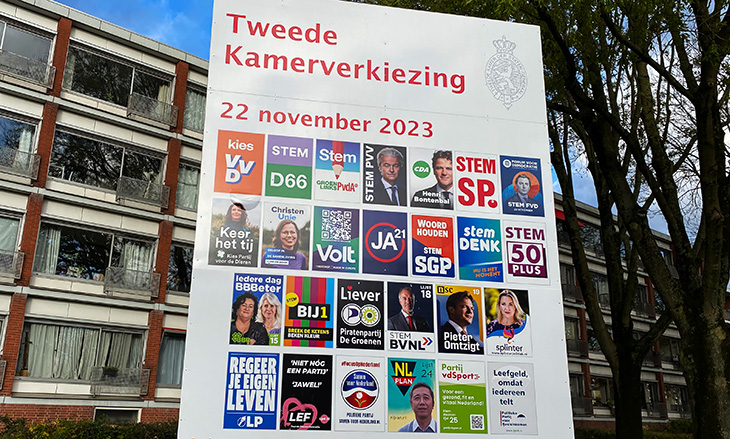
Here’s an overview of how the Dutch political system works:
- Monarch:
The Netherlands has a constitutional monarch, meaning that the monarch’s powers are limited by the constitution. King Willem-Alexander is the reigning monarch. - Parliament:
The Dutch Parliament is bicameral, consisting of two chambers: the House of Representatives (Tweede Kamer) and the Senate (Eerste Kamer).
Members of the House of Representatives are directly elected by the Dutch citizens through proportional representation. The number of seats a party gets is proportional to the number of votes they receive.
The Senate is not directly elected. Its members are indirectly elected by the members of the provincial legislatures.
Parliament or so we say “Parlement” consists of the Senate and the House of Representatives, together called ‘States General’. - Government Formation:
After parliamentary elections, a coalition government is usually formed since it is common for no single party to have a majority in the House of Representatives.
The leader of the largest party often becomes the Prime Minister.
Government or so we say “Regering” consists of the Prime Minister, Council of Ministers and the King.
The king is not part of the cabinet. - Prime Minister:
The Prime Minister is the head of the government and is responsible for forming a cabinet.
The cabinet is composed of ministers, each responsible for a specific government department. - Cabinet:
The cabinet is collectively responsible to the House of Representatives.
The ministers are appointed by the monarch on the advice of the Prime Minister.
Cabinet or so we say ” Kabinet’ is formed by the ministers and state secretaries. - Political Parties:
The Dutch political landscape is characterized by multiple political parties.
Coalition governments are common, as no single party typically secures an outright majority in the House of Representatives. - Local Government:
The Netherlands is divided into municipalities, each with its own local government.
Local government officials are elected by the residents of each municipality. - Constitutional Framework:
The Dutch constitution outlines the fundamental principles and rules of the political system. - Judiciary:
The judiciary in the Netherlands is independent of the legislative and executive branches. The Supreme Court is the highest in the country.
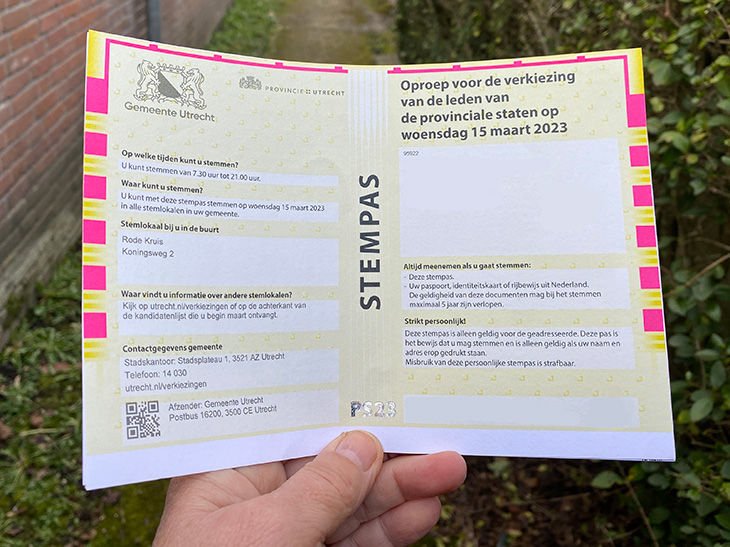
➔ READ MORE – Dutch Government, everything there is to know about Dutch elections.
Parliament controls the government. The government is in charge of the day-to-day management of the country. The Netherlands has a parliamentary system: the government is accountable to parliament.
In the Netherlands, the executive power lies with the Administration which is the legislative power and is formed by the government and parliament. The judicial power lies with the judges and the Public Prosecution Service. Power is divided between different systems, the legislative, the executive, and the judiciary, a so-called separation of powers.
Inhabitants of the Netherlands and the number of eligible voters.
In 2023 there will be 17,935,708 inhabitants in the Netherlands. Of these, 13,265,777 are eligible voters. The more votes cast in total, the more votes are needed for one seat. The House of Representatives has 150 seats.
➔ READ MORE – Central Bureau Statistics of the Netherlands – Population Counter
The right to vote in elections
In the Netherlands, from the age of 18 years, you are allowed to vote. Voting is a right but it is not mandatory. In the Dutch municipal elections, EU citizens who legally live in the Netherlands and other residents who have been legally resident in the Netherlands for at least five years are allowed to vote.
The Netherlands is a democracy
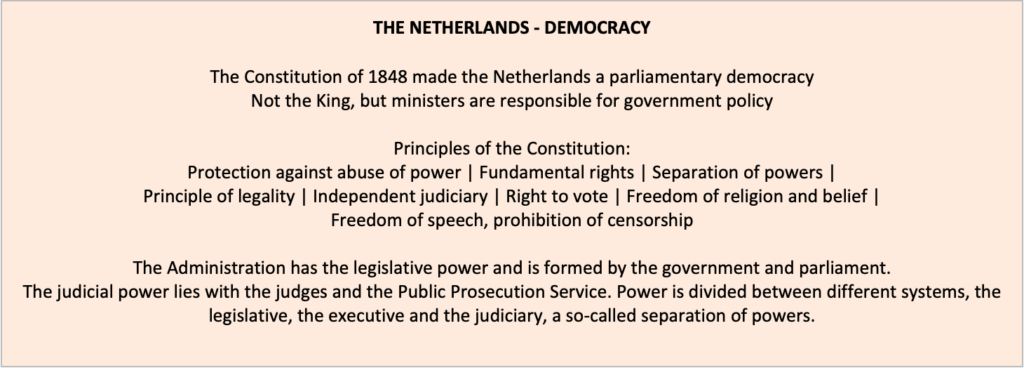










Speech of King Willem-Alexander on Prinsjesdag
On the third Tuesday of September, King Willem-Alexander opens the new working year, the Staten General, of parliament in The Hague with the Speech from the Throne “Troonrede”. On this day the Cabinet releases its budget proposal for the upcoming year.
➔ READ MORE – Prinsjesdag – Prince Day at Den Hague – Third Tuesday of September
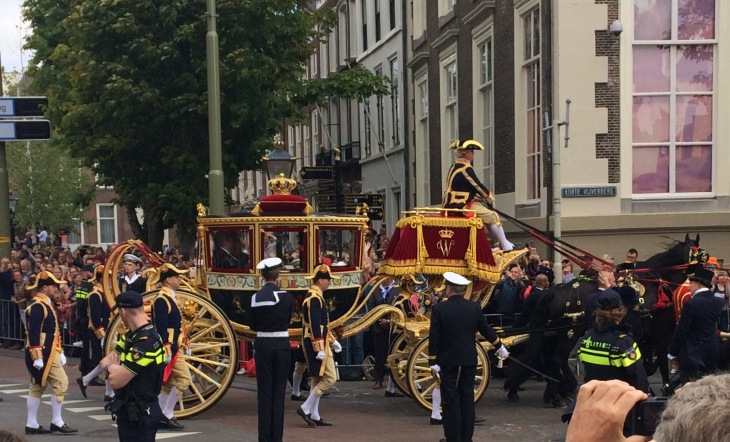

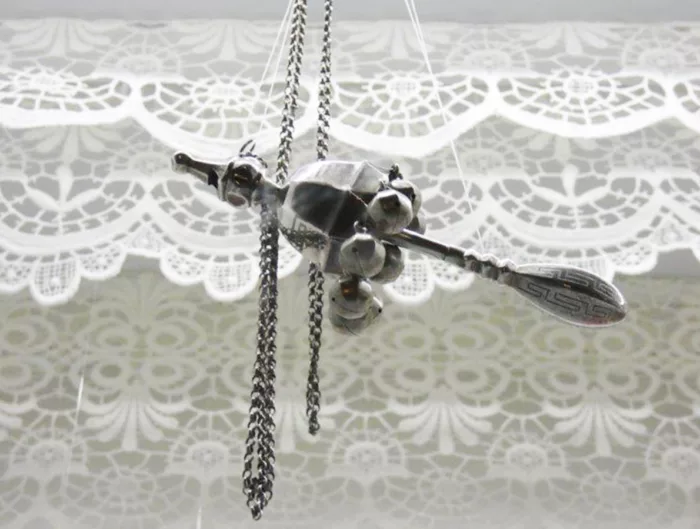
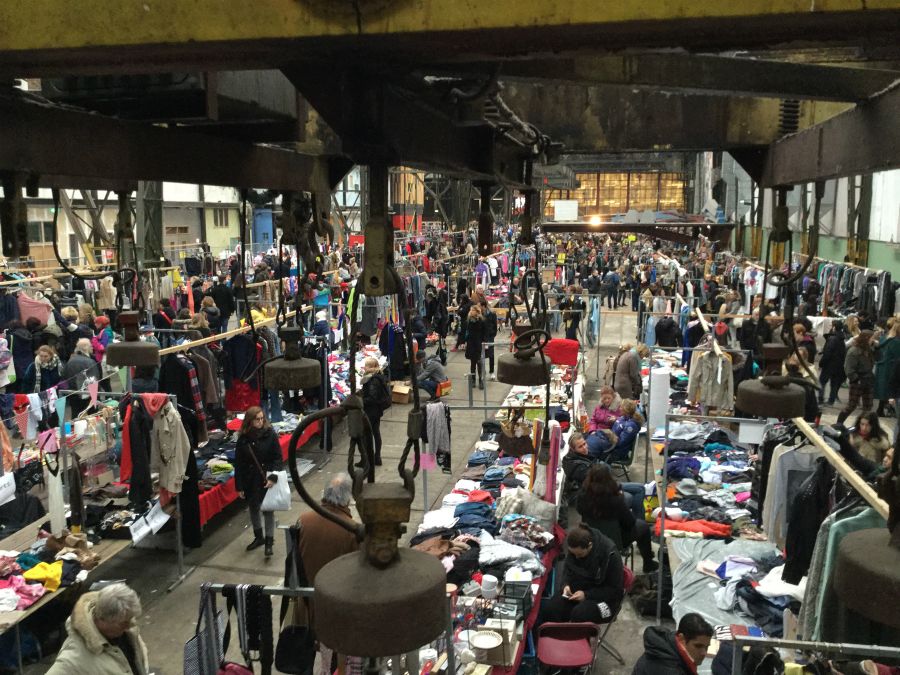



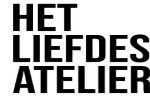
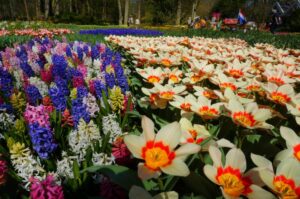

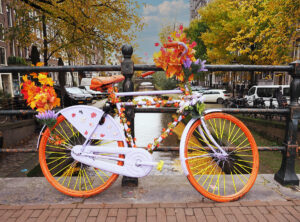

Leave A Reply